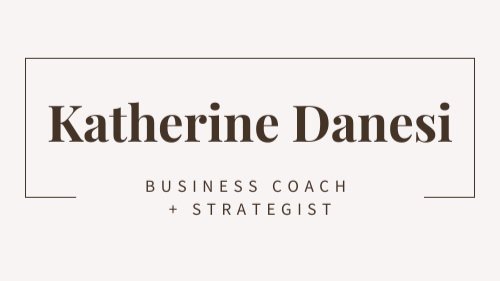How to more effectively focus your efforts to get better business results
I spent the Christmas holiday with family in Canada. With a quick, one-day turnaround in NYC after my time in Paris (unpack - repack), I flew to Toronto.
I always look forward to my time there — I don’t have children of my own, but I do have three nieces and, well …. ❤️❤️❤️ .
A conversation with one niece.
Now that they’re in their mid-teens, early 20’s, the conversations are getting interesting. The youngest of the three is in Grade 10 (in Canada-speak). While I was there, she spent a good deal of time on her phone researching careers she might be interested in.
I was curious why.
It turns out she was doing so because she needed to have a track to follow to select her courses for Grade 11 — those that would get her into university programs for that chosen career.
Um — wow — I don’t remember this being a thing.
_____
Another niece, another conversation.
A few days later, I was having a separate conversation with my middle niece (affectionately known by me as #2). She is in Grade 12 and is waiting to hear back from the schools she applied to.
In contrast to the aforementioned niece (#3), when #2 was in Grade 10, she had a pretty good idea of she wanted to study at university. She also knew what subjects she was interested in and what came easily to her (math, science). And what she was not at all interested in and what she found more challenging (English, history).
And she did something I thought was super-smart. Knowing that English was not her strong suit, she went to summer school between 10th and 11th grades and knocked Grade 11 English off her mandatory course list.
As she explained to me, reading the texts and writing the essays required a lot of effort.
Expending this effort in the summer allowed her to double down and focus on her math and science courses in the regular school year. These were the courses she could really excel at, were “on track” for university, and would help her gain acceptance into the programs she would eventually apply to.
Um — wow — I don’t remember being this forward-thinking at that age.
_____
The business lesson.
This story stayed with me. I took its staying power as a sign — there was something more to mine here.
And it got me thinking…
How can you use the time you have available during the week to create more of it for what you love to do — think focus, fun, and flow — to achieve greater results?
What if you schedule the tasks/activities that are not in your sweet spot on specifically chosen days and / or times — you know they need to be done, but not necessarily when you’re at your creative peak?
Then, you focus your time and effort on those activities with the potential for the greatest impact in the direction you want to go — at times that you know to be highly productive?
Could you improve your results in both task categories, but especially the latter?
And I’d suggest this approach requires self-awareness and a willingness to:
Accept who you are, what you excel at, and where you want to go.
Acknowledge that time is an asset and it’s up to you to determine how best to use it to move in your chosen direction.
Admit that you can’t be great at everything and find ways to work with those areas that are not your strong suit so as to not drain your energy for those that are.
Believe that the things that light you up, do so for a reason — and they can lead to as-yet-unrealized (read: amazing) results in your business.
_____
I hope this gets you thinking. I know it has me doing so.
If you’d like to talk through what doubling down on your strong suit looks like for you, book a discovery call . I’d love to help.✨
And in case you’re wondering about #1, she is in her third year of university. Realizing where her interests, natural talent, expertise, and passion lay, she pivoted — shifting her major at the end of her second year to one she loves and is doing really well at.
